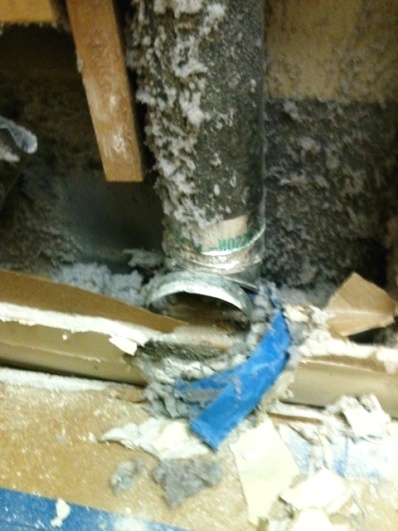Find a Mold Specialist Now
Click or Call, Toll-Free 24/7
Mold Prevention
Why Prevent Mold?
Mold can also be harmful to your health, so mold prevention is very important. Mold uses tiny spores to reproduce, and inhaling those spores causes respiratory problems and other health problems, like headaches, depression and fatigue.
Mold is a type of fungus. In nature, mold eats dead plants and animals, serving an important purpose. Mold can grow indoors, however, where it does not serve a purpose but can destroy materials. It can damage materials in your home. It can ruin carpet, even walls. Preventing mold is important because if mold takes hold, you can spend a fortune replacing ruined items.
Mold prevention is also important because once it takes hold, it’s hard to get rid of it. If you see mold or notice a musty smell in your house, you have a mold problem and need to address it. If you don’t see or smell mold, you probably do not have a mold problem and you want to keep it that way. If you’re not sure if you have a mold problem, you can have a professional come in and conduct a test. Your home owner’s insurance may even pay for it.
How Do I Prevent Mold?
Mold requires organic material and moisture in order to grow and thrive. There is usually plenty of organic material in homes and it’s almost impossible to get rid of it all, so the key to mold prevention is eliminating excess moisture. Water leaks, high humidity and condensation all provide moisture that allows mold to grow. If your roof leaks or water comes in around windows, fix it. If humidity is high, invest in a dehumidifier.
If you experience flooding or a leak, you need to dry things out thoroughly. Use fans and a dehumidifier (or two), take up all carpet and remove all soaked objects until they can be dried. Some items may need to be discarded and replaced.
Make sure your home has adequate ventilation in areas like bathrooms, laundry rooms and attics. Energy efficient homes may hold moisture inside, in which case opening a window or turning on a fan when showering and cooking will help with mold prevention.
Use Materials that Prevent Mold When Renovating
You can purchase mold-resistant drywall or sheetrock, which are particularly useful in high-moisture areas like bathrooms and laundry rooms. Ask for mold-resistant products at your local home improvement store, or if you have a professional contractor handling your home renovations, ask him or her to use mold-resistant products whenever possible.
Monitor Indoor Humidity
The Environmental Protection Agency recommends keeping indoor humidity between 30 and 60 percent. Purchase a moisture meter at your local hardware store and use humidifiers or dehumidifiers if necessary to keep the humidity at the right level to prevent mold.
Direct Ground Water Away from Your Home
Another key to mold prevention is directing ground water away from your home. If the ground slopes toward your home, you’re likely to have leaking in your basement or in a crawlspace, which will lead to the growth of mold.
Keep Your Gutters Clean
Clogged gutters often lead to leaky roofs. Prevent mold by preventing leaks. Clean your gutters regularly and if you notice stains on your ceiling, check the gutters for clogs and check the roof right away for leaks.
If you suspect mold, have a professional test your home. A small problem now can grow into a large problem later if ignored.
Benefits to Having a Professional Test Your Home for Mold
- A professional has the most accurate testing equipment and is trained in conducting and interpreting mold tests.
- A professional can locate all areas of mold growth in your home; mold sometimes grows in places that are difficult to find.
- A professional can determine what strain or strains of mold are present in your home. This information is valuable because the health risks associated with mold exposure vary depending on the strain of mold, and if you’re experiencing symptoms of mold exposure, you should let your allergist or other doctor know what strains of mold you’ve been exposed to.
- It’s also helpful to know what strain of mold is growing in your home because certain biocides work best to eliminate certain strains of mold.
- A professional can advise you of the safety risks involved with mold removal and provide helpful tips for doing the job correctly.
- A professional can help you determine what caused mold to grow in your home and how to prevent future mold problems.
For a list of licensed professionals in your area that can test your home for mold, follow this link.
Additional Reading:
Summer Tips to Prevent Mold
Winter Tips to Prevent Mold
Bathroom Mold Prevention - Steps to prevent mold in your bathroom
Signs of a Hidden Water Leak - Early detection of a leak is very important to prevent mold.
Preventing Mold After a Flood - Avoiding mold after a flood is not easy. How to prevent mold or at least lesson the amount that develops after a flood.
Return From Mold Prevention To Black Mold Health Symptoms Home Page





